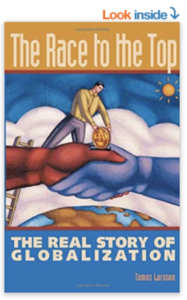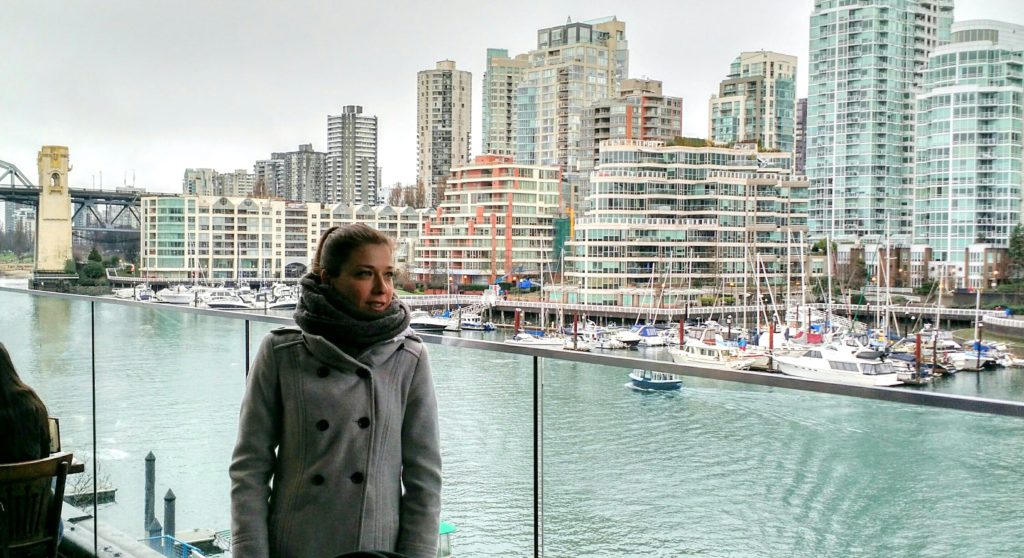The Real Story of Globalization

The book also discusses the theories of those authors who are against globalization. One of them is Beck, whose main disagreement states that “Globalization means collapse, pure and simple.” Another counter-argument comes from Thomas L. Friedman, who, in his book, “The Lexus and Olive Tree,” argues that globalization is a process where the winner takes all, leaving the rest of us squabble over the crumbs.
In his Globalization and its discontents, Joseph Stiglitz asserts that this process we call ‘globalization’ has, under environmental terms, bad effects on the developing countries. He also argues that this globalization is pushing life expectancy to decline.
Instead, Tomas Larsson documents the positive effects globalization has on people’s lives, with real examples, from Brazil to Thailand. Globalization means the removal of barriers to free trade and the integration of national economies.
Thailand was among the countries with the highest customs tariffs in the world. It was difficult for cheaper goods to find their way into the country. Within years, Thailand reduced the tariffs and it became more and more open to foreign goods, capital, and expertise. “Globalization turns yesterday’s victims into tomorrow winners,” the author concludes.
The problem with globalization is that the world hasn’t yet realized the important role of international trade. Let’s just think of how many jobs trade can provide. Key to globalization are foreign investments which give domestic enterprises access to better technologies to expand and improve production of goods and services. Access to foreign capital spurs economic growth and with international trade provides more jobs than before.
Western countries were once poor, but now are prosperous and democratic. The factor that helped them was the international trade. Free trade means the removal of trade barriers. The recommendation for the rich countries would be to remove their trade barriers for goods produced in poorer countries.
Tomas Larsson shows us that some people fear globalization because they think it can lead them to lose their cultural identity (he gives us the McDonalds example). Political leaders of some developing countries claim to find virtue in isolation. However, he argues that the the poor can best help themselves once they have access to tools, technologies, and world markets, gaining from exposure to globalization. “The losers in today’s world are those who are not exposed to globalization,” he phrases his argument. Globalization is seen as a process that can enhance the quality of life.
Tomas Larsson’s book provided me the first insight of what globalization means. Yet, I do have some further questions.
What is the real degree of danger (if there is one) that some countries may face in losing their cultural identity? I am thinking of Romania which imported the Valentine’s Day and Halloween from the US, instead of celebrating its own correspondent holidays – Dragobetele (for the former). Names of newly opened restaurants, cafes, bars and their menus are written in English.
Also, I ask myself whether globalization has negative effects upon those countries that do have problems in defining their identity. We, for example, are having troubles for several years to define what the “Romanian identity” means. This reflects best in the unsuccessful trials of creating a branding spot (advertising) for Romania.. . . . . . .
May 2014 postscript by Greg Rehmke…
Over time Romanian goods, enterprises, and brands will continue to gain traction in world markets. Romanian wines improve as imported wine-making expertise mixes with already exceptional Romanian grapes (“Helping Romanian wine make a name for itself“). Romanian-built Dacia automobiles gain a reputation for value and market-share in the UK, as do Romanian workers among international car manufacturers. Microsoft, Oracle, and dozens of other technology firms small and large now have profitable operations in Bucharest, Cluj, and other Romanian cities. And Romanian movies win awards and gain audiences across Europe and overseas.
[see also follow-up post by Marina Tanase, More on Globalization – Covid and its effects and Immigration reform in Canada]

